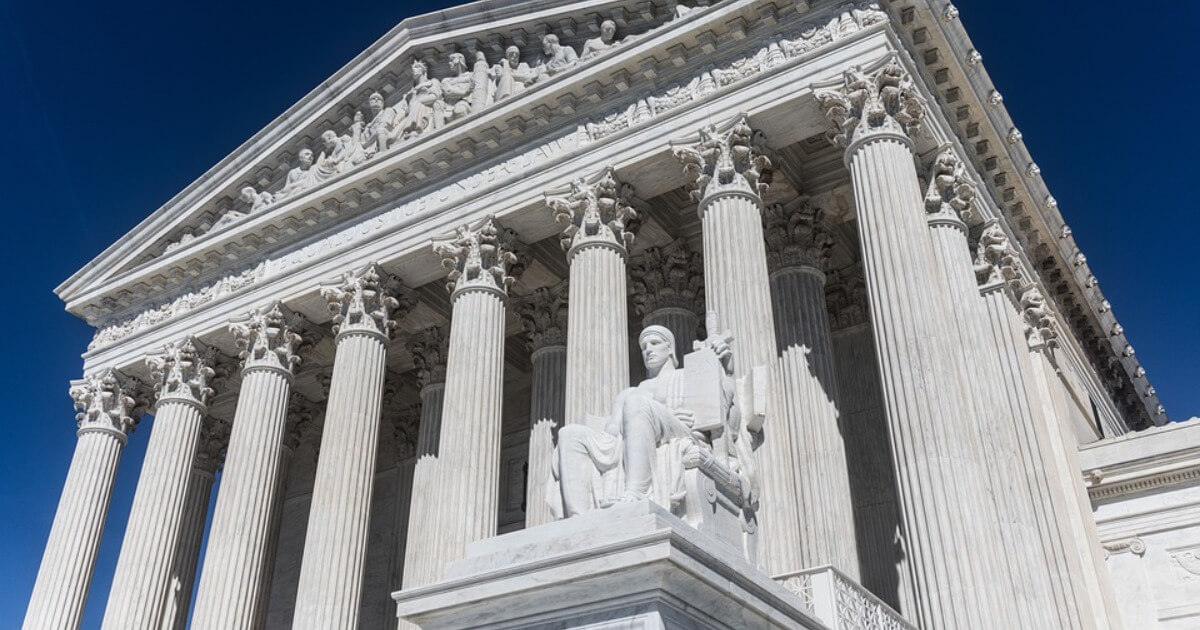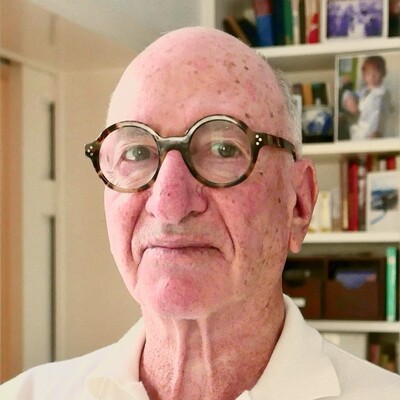U.S. Presidents Granted a License to Steal
The U.S. Supreme Court ruling may encourage grand corruption.
July 15, 2024

A Strategic Assessment Memo (SAM) from the Global Ideas Center
You may quote from this text, provided you mention the name of the author and reference it as a new Strategic Assessment Memo (SAM) published by the Global Ideas Center in Berlin on The Globalist.
The Supreme Court of the United States has given the American President a license to pursue corruption. This extraordinary decision will have long-term effects in the United States and across the world. It will encourage authoritarian leaders to steal even more cash from their citizens.
Lawyers for Donald Trump argued before the Supreme Court that criminal charges brought against him by the U.S. Special Prosecutor relating to his conduct after the November 2020 election should be set aside. He claimed that he enjoyed immunity from prosecution as President at that time.
Absolute immunity
The majority of the Supreme Court’s justices decided that a U.S. President, now and in the future, cannot be prosecuted: “with respect to the President’s exercise of his core constitutional powers, this immunity must be absolute. As for his remaining official actions, he is entitled to at least presumptive immunity.”
Such immunity does not exist for “unofficial acts,” and U.S. courts and lawyers will be engaged in excruciatingly complicated arguments in determining what is an “official” and what is an “unofficial” act.
Crucially, the Supreme Court also said that when judges do make decisions “courts may not inquire into the President’s motives.” This could make the collection of evidence extremely difficult.
Taking public cash
Throughout his career, Donald Trump has assigned the highest priority to accumulating cash. That is why I will focus the Supreme Court’s decision solely through the lens of public funds and in particular the increased opportunities that a U.S. President now may have to abuse his public office for personal benefit — corruption.
Let us assume Trump is elected President in November and decides that the Doral Country Club in Florida, which he owns, should be the venue for an international summit conference, and let us also assume that $50 million of U.S. government funds should be used to improve the facility so that it meets the highest standards necessary to impress the visiting international leaders.
Such expenditures would immediately benefit the Doral’s owner, attract more high-paying tourists and members, while increasing the overall value of the property significantly.
Such an act, in my view, would be such a gross conflict of interest that it represents corruption. It may be recalled that in August 2019, then President Trump did propose Doral as the venue for the G-7 Summit, but a huge public outcry led him to back down.
In the future, Trump could claim that whether or not his action might be viewed as criminal, the decision is an official act and therefore he enjoys immunity from prosecution. He might even have the Doral decision approved by the White House ethics counsellor, whom Trump can hire or fire at will.
Criminal action
Going further, let us assume in this hypothetical case that Trump did not disclose publicly that he, or his family, had a financial interest in the company that the government would hire to make the $50 million renovations at Doral.
While this is more obviously a criminal act, Trump would insist that all aspects of the decision were official acts. It might be very difficult to criminally prosecute the President because his discussions with his immediate subordinates in setting up the scheme would be shielded by executive privilege.
It is possible that associates of the President might be prosecuted as immunity only applies to the President. However, even if found guilty by the courts, the associates would likely receive pardons from the President.
While the U.S. Congress could always impeach a President, recent failed efforts have shown how difficult this path is in the quest for justice.
A wrong decision
Associate Justice Sonia Sotomayor, writing on behalf of the Supreme Court justices who dissented from the majority decision, asserted: “Under the majority’s rule, a President’s use of any official power for any purpose, even the most corrupt, is immune from prosecution. That is just as bad as it sounds, and it is baseless.”
Sotomayor added: “The President of the United States is the most powerful person in the country, and possibly the world. When he uses his official powers in any way, under the majority’s reasoning, he now will be insulated from criminal prosecution. Orders the Navy’s Seal Team 6 to assassinate a political rival? Immune. Organizes a military coup to hold onto power? Immune. Takes a bribe in exchange for a pardon? Immune. Immune, immune, immune.”
It would be tempting to suggest that the Supreme Court’s majority decision could eventually be reversed by future justices who form a majority that takes the view that there is no basis in the Constitution to support this ruling.
For the time being, this is just wishful thinking given the lifetime tenure of the incumbents. The oldest are the two most ardent right-wingers, Clarence Thomas (75) and Samuel Alito (73), while all of the others are in their 60s and 50s.
Democracy damaged
Through statements by the President and actions by many government spokesmen and agencies, the United States seeks to promote itself as the democratic model. It strives to encourage all nations to operate a political system of checks and balances where no individual is above the law.
The central issue for President Biden in this election campaign is that Trump is determined to abandon democracy in favor of authoritarianism.
The Supreme Court has written a new script. It has determined through this and other decisions that it is subject to no check. The courts are supreme in the U.S. system. They can determine whether or not a President commits an official or an unofficial act — and the majority today clearly supports unencumbered presidential power.
Global Impact
The criminal charges brought against Trump are the first criminal charges ever brought against a U.S. President. Perhaps future presidents will behave well, adhering both to the letter and the spirit of the oath of office.
Across the world, however, leaders will consider the Supreme Court’s decision and conclude that if this nation that boasts so loudly about the virtues of democracy sees the nation’s leader as being immune from criminal prosecution, then why should not this be the universal standard.
In many countries it already is, but the U.S. decision may well encourage kleptocratic authoritarians to be even more brazen.
The Supreme Court has written a license to leaders to abuse their public offices for their personal gain. At a stroke the Supreme Court has undermined all the historic efforts that the Biden Administration has made — through its summits for democracy, its anti-kleptocracy U.S. AID programs, its increased enforcement of anti-corruption and anti-money laundering laws and regulations.
The King is above the law
Moreover, while strong cases can be made to suggest that two of the associate justices on the Supreme Court have acted in ways (and their wives have acted in ways) that leave no doubt about their powerful right-wing views, they refused to recuse themselves in the immunity decision.
And, Chief Justice Roberts, who wrote the majority opinion, refused to meet with U.S. Senate leaders to discuss Supreme Court ethics.
Supreme Court Associate Justice Ketanji Onyika Brown Jackson added her voice in dissent in noting that, the concept of immunity boils down to a maxim “The King can do no wrong.’”
She concluded: “It is a core tenet of our democracy that the People are the sovereign, and the Rule of Law is our first and final security. The majority of my colleagues seems to have put their trust in our Court’s ability to prevent Presidents from becoming Kings through case-by-case application of the indeterminate standards of their new Presidential accountability paradigm. I fear that they are wrong. But, for all our sakes I hope that they are right.”
Takeaways
The US Supreme Court has given the US President a license to pursue corruption.
The US Supreme Court has written a new script. It has determined through this and other decisions that it is subject to no check.
It would be tempting to suggest that the US Supreme Court’s majority decision could be reversed, and that a majority of the justices will come around to the view that there is no basis in the Constitution to support this ruling.
The US’s decision may well encourage kleptocratic authoritarians to be even more brazen.
Across the world, leaders will consider the US Supreme Court’s decision and conclude that if the nation that boasts so loudly about the virtues of democracy sees the nation’s leader as being immune from criminal prosecution, then why should not this be the universal standard?
US courts and lawyers will be engaged in excruciatingly complicated arguments in determining what is an “official” and what is an “unofficial” act.
The Supreme Court also said that when judges do make decisions “courts may not inquire into the President’s motives.” This could make the collection of evidence extremely difficult.
A Strategic Assessment Memo (SAM) from the Global Ideas Center
You may quote from this text, provided you mention the name of the author and reference it as a new Strategic Assessment Memo (SAM) published by the Global Ideas Center in Berlin on The Globalist.


